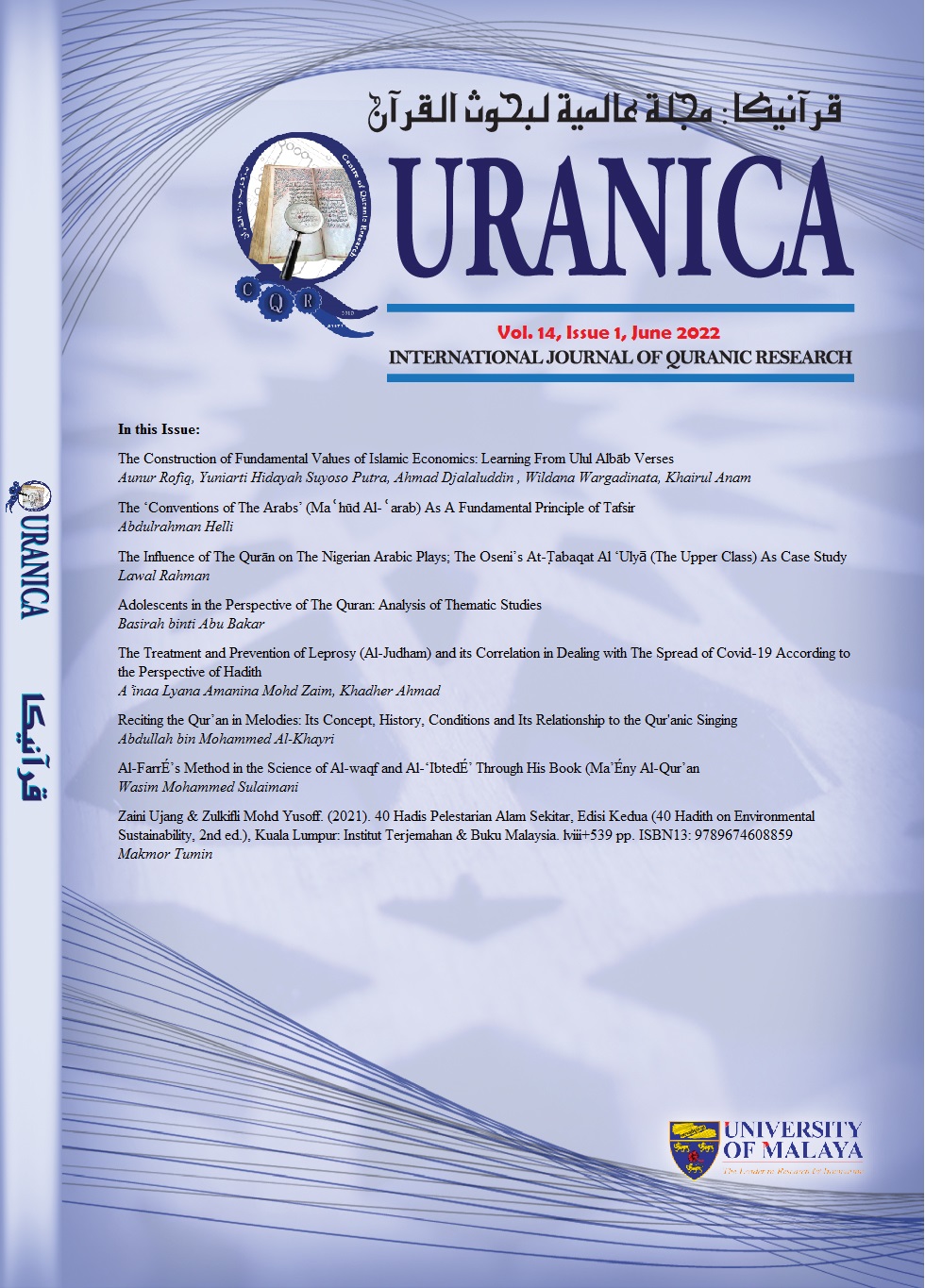The Influence of The Qurān on The Nigerian Arabic Plays; The Oseni’s At-Ṭabaqat Al ‘Ulyā (The Upper Class) As Case Study
Main Article Content
Abstract
Studies have shown that the Quran has influenced Arabic literature in various ways. The Nigerian Arabic literature is not an exemption. This study therefore examines the influences of the Quran on the Nigerian Arabic plays using the Oseni’s at-Tabaqat al-Ulya (The Upper Class) as a case study. The research is therefore significant as it examines the semantic variations of the Quranic text appearing in the text of the play. The research reveals how much the Nigerian Arabic literary experts use and value the Quran. The researcher adopts the descriptive and analytical methods of research. The researcher describes and analyses how the writer has used the Quran to influence his styles and the characters’ dialogue until the climax is reached. It is unfolded that the playwright’s styles have been influenced by the Quran in five ways. These include using certain expressions prescribed by the Quran in dialogue, using it to introduce and reveal outcome of events, express fear, signify warning and most commonly for supplication. In all the five cases, the Quranic wordings are either quoted directly or paraphrased. The study reveals how the Quran influences the author’s styles and thereby contributes strongly to the organic unity of the literary piece of work. It is recommended therefore that researchers should investigate more on the influence of the Quran on other aspects of the Nigerian Arabic writings.
Downloads
Article Details
Disclaimer
QURANICA makes every effort to ensure the accuracy of all its contents. However, opinions, discussions, views and recommendations are expressed in this journal do not necessarily reflect the official policy of QURANICA or views of its editors or publishers. Therefore, QURANICA and its publishers will not be liable for any controversy may be arisen. The journal reserves the right, at its sole discretion, to change its terms and conditions of publications.
Copyright
It is a condition of publication that manuscript submitted to the journal have not been published, accepted for publication, nor simultaneously submitted for publication elsewhere. By submitting a manuscript, the author(s) agrees that copyright for the article is transferred to the publisher, if and when the manuscript is accepted for publication.
